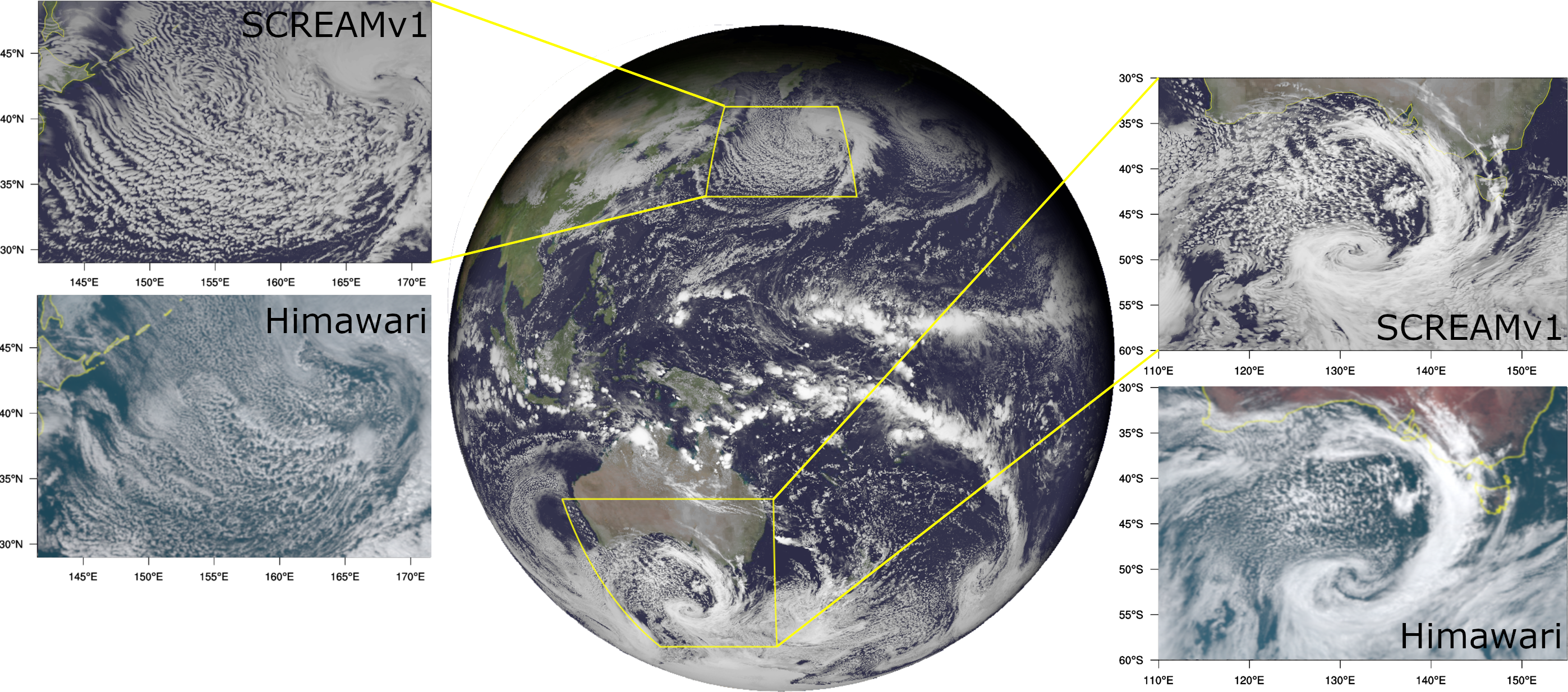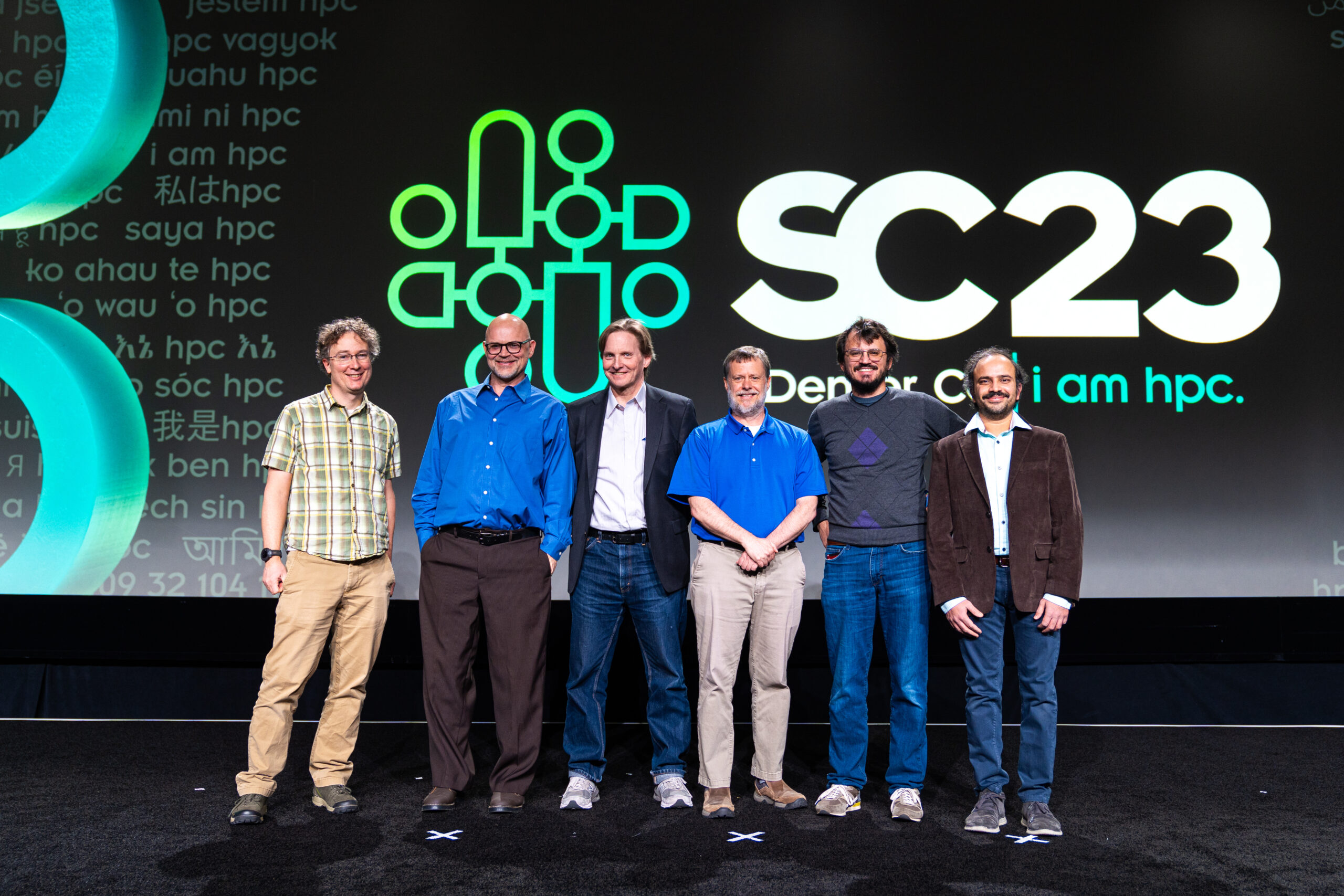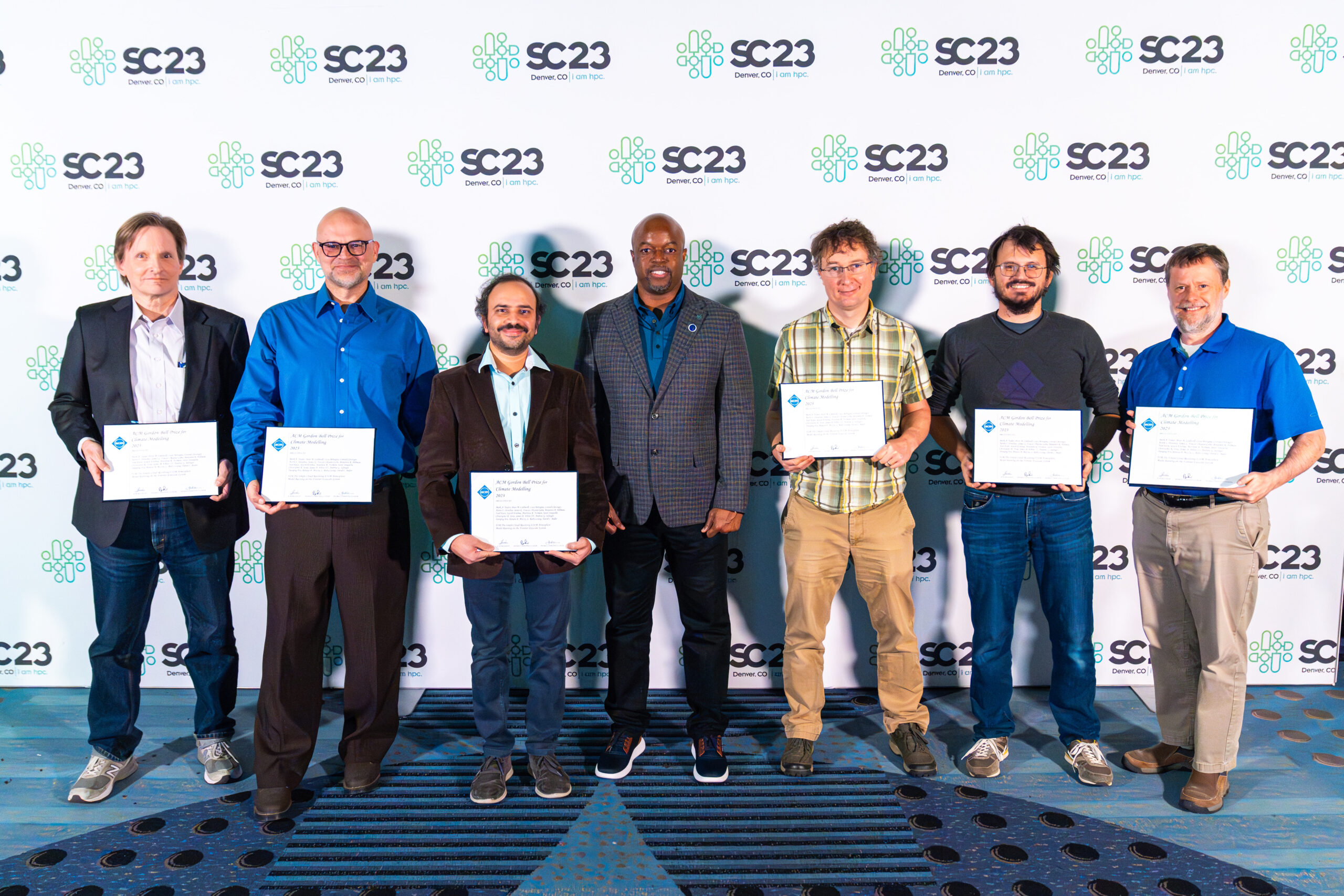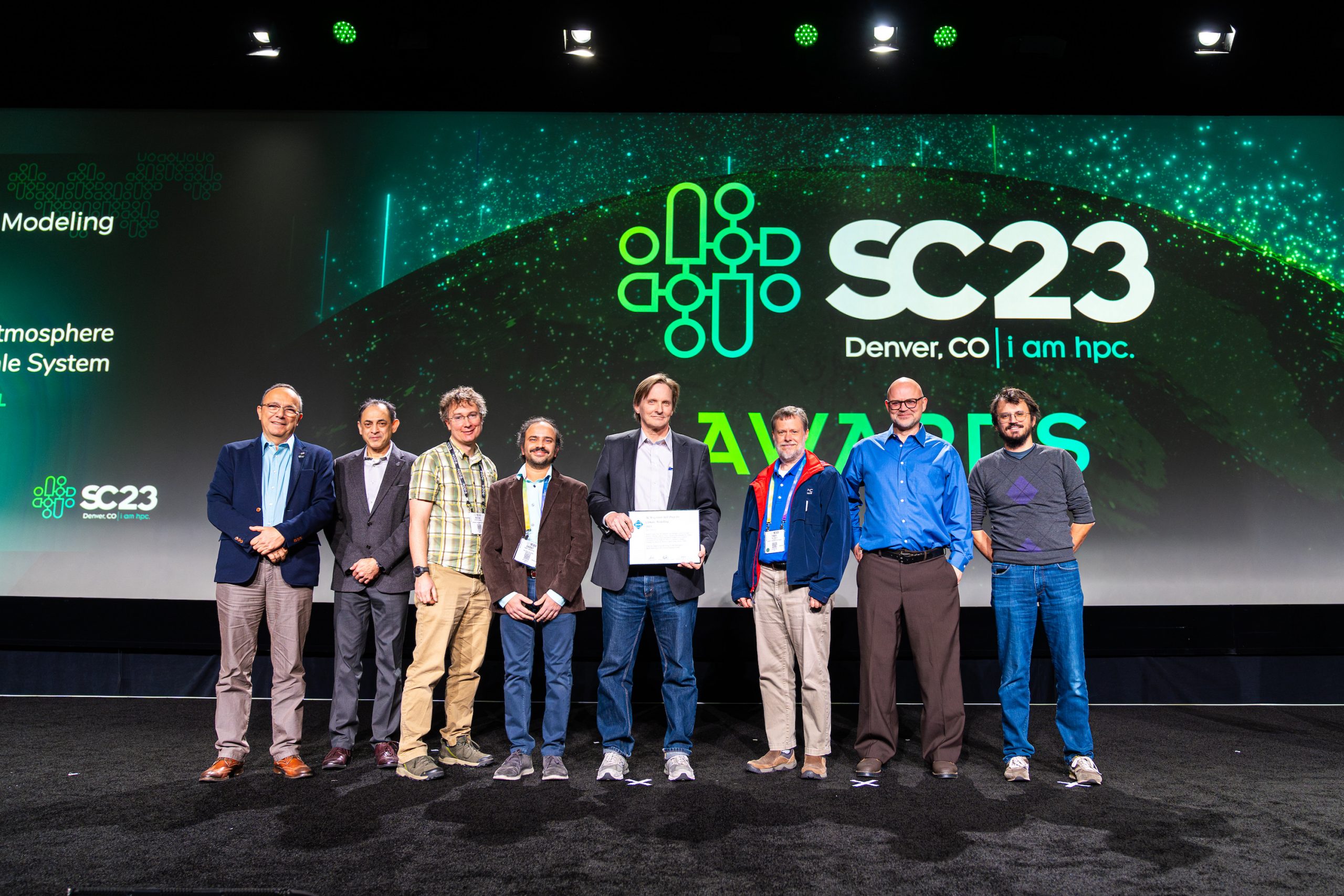E3SM wins Gordon Bell Prize for Climate Modeling
On November 16, 2023, at the Supercomputing Conference (SC23) in Denver as part of a special ceremony, the Association for Computing Machinery (ACM) announced that E3SM wins the inaugural Gordon Bell Prize for Climate Modeling with the submission: “The Simple Cloud-Resolving E3SM Atmosphere Model Running on the Frontier Exascale System” (SNL, LLNL, LBNL, ANL, ORNL, HPE, PNNL)”, see Figure 1.
The prestigious Gordon Bell Prize recognizes outstanding achievement in high-performance computing. The purpose of the award is to track the progress over time of parallel computing, with particular emphasis on rewarding innovation in applying high-performance computing to applications in science, engineering, and large-scale data analytics.
Starting in 2023, an additional Gordon Bell prize will be awarded in the area of Climate Modeling. This prize will be awarded every year for ten years to recognize innovative parallel computing contributions toward solving the global climate crisis.
The awardee was selected based on the performance and innovation in their computational methods and their contributions toward improving climate modeling and the understanding of the Earth’s climate system. The E3SM submission presents a solution to a climate science grand challenge of building a Global Cloud Resolving Model (GCRM) which can surpass 1 SYPD.
The three finalists for the Gordon Bell Prize for Climate Modeling were:
- The winner: submission by US DOE’s E3SM on Frontier supercomputer: The Simple Cloud-Resolving E3SM Atmosphere Model Running on the Frontier Exascale System, https://doi.org/10.1145/3581784.3627044
- Finalist: submission by Japan on Fugaku: Big Data Assimilation: Real-time 30-second-refresh Heavy Rain Forecast Using Fugaku During Tokyo Olympics and Paralympics, https://doi.org/10.1145/3581784.3627047
- Finalist: submission by China on Sunway: Establishing a Modeling System in 3-km Horizontal Resolution for Global Atmospheric Circulation triggered by Submarine Volcanic Eruptions with 400 Billion Smoothed Particle Hydrodynamics, https://doi.org/10.1145/3581784.3627045
The E3SM submission presented an efficient and performance portable implementation of the Simple Cloud Resolving E3SM Atmosphere Model (SCREAM, Fig. 2). Cloud-resolving models are a particular type of atmospheric model, designed to resolve dynamics at cloud-scale. Typically, this requires a horizontal resolution of a few kilometers or less. SCREAM is an atmospheric global circulation model with a nonhydrostatic dynamical core and state-of-the-art parameterizations for microphysics, moist turbulence and radiation. It has been written from scratch in C++ with the Kokkos library used to abstract the on-node execution model for both CPUs and GPUs.

Figure 2: Snapshots of outgoing shortwave radiative flux at model top from a January SCREAM simulation, taken two days into the simulation (2020-01-22 at 02:00:00 UTC). The orthographic projection in the middle panel shows model clouds represented by shortwave flux superimposed on a NASA Blue Marble image (NASA Visible Earth – Home). The insets show comparisons against Himawari-8 visible satellite imagery for two scenes: a cold air outbreak event near Siberia (left), and a cyclone south of Australia (right).
SCREAM is one of only a few global atmosphere models to be ported to GPUs. As far as the team knows, SCREAM is the first such model to run at cloud resolving-resolutions on both AMD GPUs and NVIDIA GPUs, as well as the first to run on nearly all nodes of an entire Exascale system (Frontier). On Frontier, it obtained a record setting performance of 1.26 simulated years per day (SYPD) for a realistic cloud resolving simulation (using 32768 graphics-processing units (GPUs) on 8192 Frontier nodes).
In addition to the 19 team members listed on the Gordon Bell winning paper, congratulations are due to the entire E3SM team! The E3SM project epitomizes the ‘Big Science’ approach nurtured in the national laboratory ecosystem that brought together a critical mass of researchers across disciplines to address climate change, the grand challenge of our times.
The Gordon Bell Award is a historical milestone for the E3SM project, an amazing achievement, and a great honor!
Publication
- Mark A. Taylor (SNL), Peter M. Caldwell (LLNL), Luca Bertagna (SNL), Conrad Clevenger (SNL), Aaron S. Donahue (LLNL), James G. Foucar (SNL), Oksana Guba (SNL), Benjamin R. Hillman (SNL), Noel Keen (LBNL), Jayesh Krishna (ANL), Matthew R. Norman (ORNL), Sarat Sreepathi (ORNL), Christopher R. Terai (LLNL), James B. White III (HPE), Danqing Wu (ANL), Andrew G. Salinger (SNL), Renata B. McCoy (LLNL), L. Ruby Leung (PNNL), David C. Bader (LLNL), The Simple Cloud-Resolving E3SM Atmosphere Model Running on the Frontier Exascale System, Submission to the ACM Gordon Bell Prize for Climate Modeling, 2023. https://doi.org/10.1145/3581784.3627044
Further Details
- Details can be found in previous post: E3SM is a finalist for the Gordon Bell Prize for Climate Modeling
Contact
- Mark Taylor, Sandia National Laboratories





